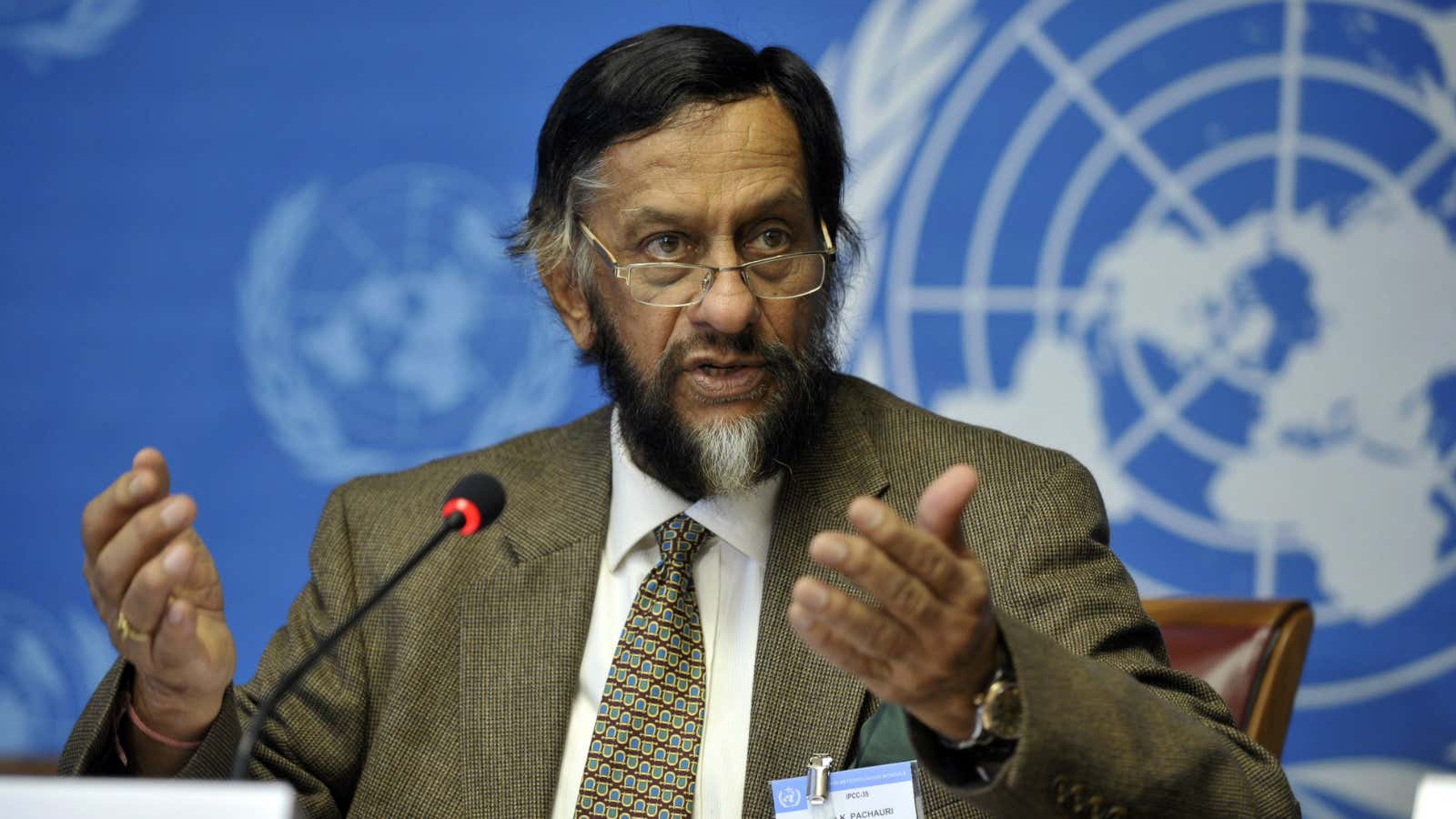Almost a year after a police complaint of sexual harassment was filed against him, environmental scientist Rajendra Kumar Pachauri’s return—with a promotion—to The Energy and Resources Institute (TERI) threatens to irredeemably tar the organisation’s reputation.
TERI, an environmental think tank and research organisation, was established in 1974 under the name Tata Energy Research Institute. It got its present name in 2003.
While Pachauri has been part of TERI since 1982, he was replaced as director-general some time last year after sexual harassment charges were made against him. Now, he has been reinstated with the designation of “executive vice-chairman”, newly created by the governing council at his behest.
Quartz tried to get responses from members of the council—some of them heavyweights in their respective industries—to the controversy. Needless to say, there was none.
The handling of the case so far has been roundly criticised by a number of internal and external observers for its brazen lack of propriety. The complainant herself has expressed revulsion at the latest development.
It all started in February 2015 when a researcher working at TERI’s office at Gurgaon accused Pachauri of sexually harassing her since September 2013. The 74-year-old denied the allegations. A globally renowned expert on climate change, Pachauri said his computer and phone were hacked, but the police rubbished this claim.
A week after the first complaint, another woman spoke up alleging sexual harassment by Pachauri.
The can of worms was now fully open.
Pachauri, also chairman of the United Nations Intergovernmental Panel on Climate Change, which won the 2007 Nobel Peace Prize, stepped down from the position. He took leave of absence from TERI. Its internal complaints committee found him guilty, but he got a stay against the implementation of the panel’s order.
In July 2015, TERI named Ajay Mathur as Pachauri’s successor, but left almost everything about this “succession” vague. So much so that, Pachauri continued to act as its director general, even seeking court permission to go abroad in that capacity. He was allowed to enter any TERI office other than the Delhi headquarters and the Gurgaon offices.
There was fresh embarrassment in September 2015 when Kiran Mazumdar-Shaw, chairman and managing director of Biocon, quit the TERI governing council citing moral responsibility.
The council was hammered for its “shamelessness” in promoting Pachauri’s interests. The complainant then filed a writ petition with the Delhi high court against TERI’s shabby handling of the case. The court issued notices against both Pachauri and TERI.
Soon, the head of the organisation’s complaints panel, which had probed the case, quit.
In November 2015, the complainant resigned from TERI citing mistreatment. In a bizarre response to her charge, the institute released a statement that revealed information identifying her—underlining the gross insensitivity with which the issue was being handled. Reports emerged of other employees too being put under pressure to help hush up the case.
All the while Pachauri himself was tracing his way back into the organisation, which he had been part of for over three decades. The court eased his path by allowing him to enter the Delhi headquarters.
With the creation of the new post, Pachauri may have demonstrated his survival skills. But the damage to his reputation, as much as to TERI’s, has left the environment extremely toxic.
We welcome your comments at [email protected].
